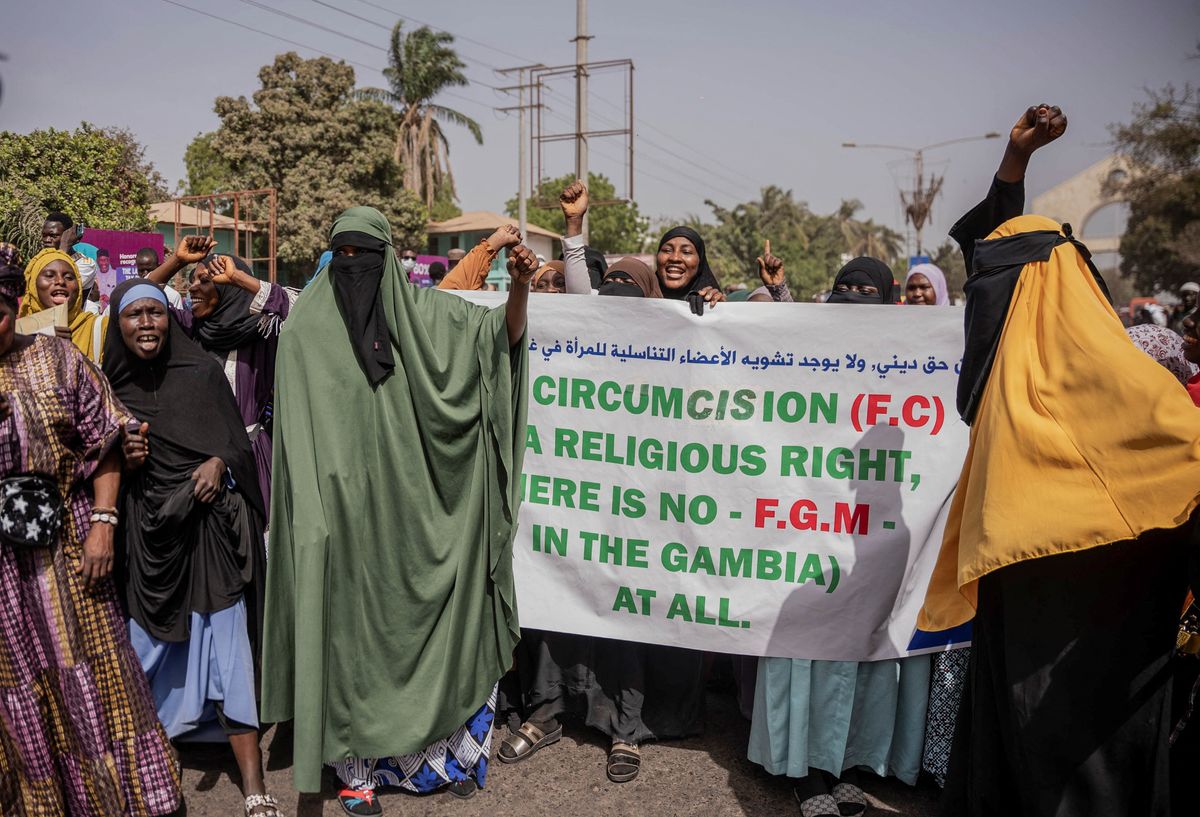Gambia’s National Assembly voted Monday to advance a bill repealing the country’s ban on female genital cutting. The vote sent the bill to committee, buying opponents three months before repealing the ban is up for a final vote. If it passes, Gambia will become the first nation to roll back protections against cutting, potentially setting a dangerous precedent for other countries.
Over 75% of women in Gambia experience cutting, which usually involves removing the clitoris and labia minora of girls between the ages of 10 and 15 and often leads to infection and life-threatening complications during childbirth.
The practice was banned in 2015 but only enforced for the first time last year. After three practitioners were fined, influential imams in the Muslim-majority country called to repeal the ban, claiming that cutting is religiously and culturally important.
Anti-cutting campaigners protested outside Parliament during the vote, but only religious leaders and their supporters advocating for the repeal were granted entrance. Out of the 47 lawmakers present, 42 voted to advance the repeal in a parliament with only five women.
Opponents of the bill fear that if the ban is repealed, other laws protecting women and girls, like the ban on child marriage, will be next.



















